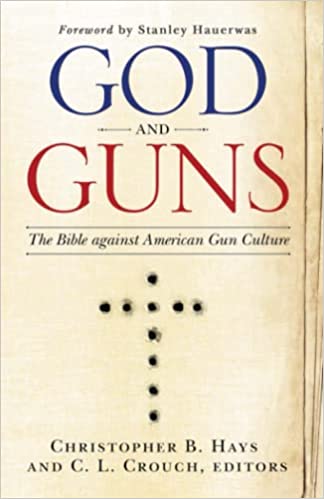The essay by Prof. Shelly Matthews is engaging, not least because upfront she admits she’s going to do a feminist reading of our presenting issue, grounded in the earlier work of Elizabeth Schussler Fiorenza. As engaging as the essay is it has various sorts of hermeneutical problems, not the least of which is the assertion that the NT contradicts itself on the issue of violence. This is simply false and involves a superficial reading of the NT evidence. For example, arguing that the Book of Revelation advocates human violence against other humans is a complete misreading when in fact that book says, which is, leave judgment in the hands of God, and be prepared to suffer and even die for the cause. Divine judgment, though repugnant to some, is in any case a separate issue from human violence against other humans. There are no texts in the NT that urge the followers of Christ to do violence against other human beings. Texts like Rom. 13.1ff. assume that those in charge of governments and the tax police are not Christians, and the duty of the Christian is to be a good citizen and pay their taxes and submit to the governing authorities. Nothing is said about what happens if Christians become involved in government or the tax police. Prof. Matthews uses her analysis of the data to justify a pick and choose policy when it comes to which bits of the NT one will follow.
And predictably there is the misanalysis of the household codes and what the NT says about slavery as justification for such an approach when it comes to the issue of violence. The household codes in Col. 3-4 and Ephes. 5-6 reflect an pre-existing situation in the patriarchal world which Paul is definitely trying to modify, in the case of the Christian household, within the context of the Christian community by injecting Christian values into an existing fallen patriarchal situation. This becomes evident when one compares how Paul: 1) treats wives, children, and slaves as human beings and indeed as moral agents who can respond to exhortations; 2) in Ephs. 5.20-22 exhorts mutual submission between men and women with husbands and wives being the parade example of how this would work; 3) tells masters that they are to serve their slaves as well as vice versa because of isotes—- which means equals (see the dissertation done by Dr. Murray Vasser at Asbury in 2020-21), and 4) in Philemon Paul urges Philemon to emancipate Onesimus his runaway slave treating him ‘no longer as a slave, but as a Christian brother’ and 4) as Gal. 3.28, in Paul’s likely earliest letter we already heard him say that in Christ there is no slave or free, but all are one in Christ. So no, a misreading of the household codes and what is said about slaves in Paul’s letters cannot be used to justify a pick and choose approach to what the NT says about violence by Christians. We have already dealt with the prolix Luke 22 passage which does not in fact urge carrying swords in order to do violence against other human beings, and when the weapon is misused for that purpose Jesus not only heals the victim’s ear, he further stresses to his disciples that those who live by the sword will die that way too. The fact that the Gun Owners of America badly misinterpret Lk. 22.35-38 to justify gun ownership and the use of guns is neither here nor there. My counterpoint to Matthews is that one doesn’t need a metaphorical reading of Luke 22 to come to a different interpretation of those texts. To the contrary, a proper literal interpretation of it’s likely meaning in its original setting is all that is required. The same applies to arguments about the 19th century misuse and misinterpretation of what was said about slaves and slavery in the NT.
Matthew states her hermeneutical principles on p. 104-05: “a key aspect of feminist biblical interpretation is the observation that the Bible was written in a patriarchal or kyriarchal context and that these aspects of the Bible must be identified, critiqued, and rejected for the sake of our salvation. This is especially crucial for those who have experienced passages from the Bible as oppressive. Simply and directly while there may be passages supporting violence in the Scriptures, we reject them as resources for ethical behavior.” While Matthews is quite right to point out that 1 Timothy 5 does not provide any real support for the modern castle doctrine, that is protect your home, family, property with violence if necessary, the enunciation of her hermeneutical principle justifying a pick and choose which Biblical texts we valorize is very problematic. Or one thing, the NT approach to human violence does vary from what we find in various places in the OT (see the previous post on proper hermeneutics about this matter). Or another thing while she is quite right that the context of the NT is a patriarchal top down domination system, what is not the case is that we have an advocacy of that context and system as a Christian approach to power, violence, etc. It is the content which must be carefully and prayerfully interpreted while critiquing the fallen context as the NT writers are already in the process of doing.
So is the NT a two-edged sword, or better said, speaking out of both sides of its mouth when it comes to violence and the use of lethal force by Christians against other humans? No, it is not. The content of the NT is not like dueling banjos when it comes to this and related matters.













